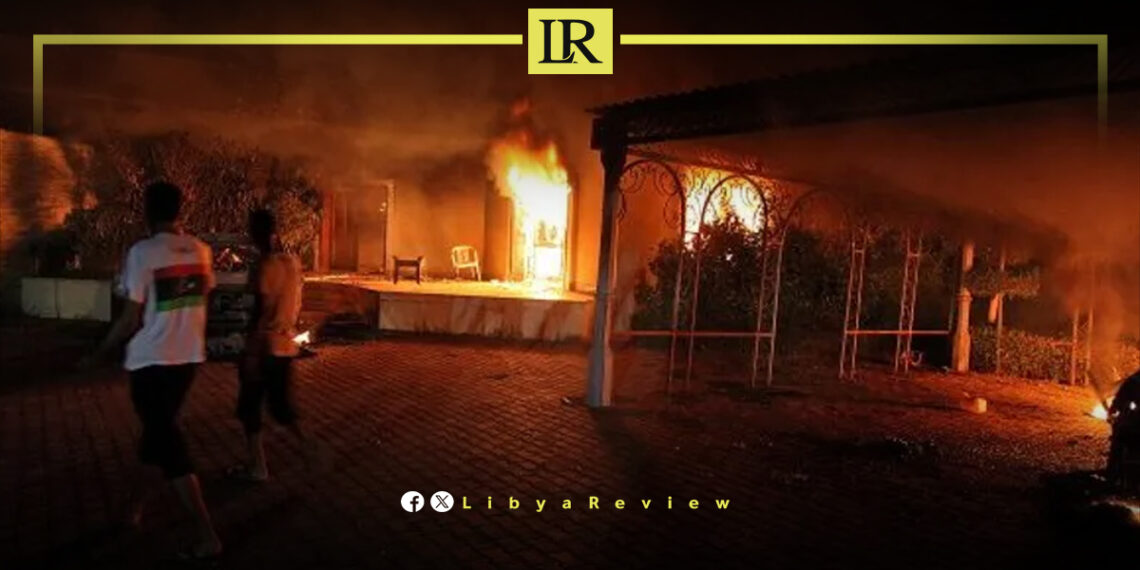In 2011, as Libya descended into chaos following the ousting of late leader Muammar Gaddafi, the city of Benghazi fell under the control of extremist groups. Al-Qaeda, ISIS, Ansar al-Sharia, and the Benghazi Revolutionaries Shura Council (BRSC) established their reign of terror, targeting civilians, political figures, and activists.
This period was marked by a wave of violence, with these groups carrying out suicide bombings, assassinations, kidnappings, and widespread looting.
Among their most notorious crimes was the September 2012 attack on the U.S. consulate in Benghazi, which claimed the lives of U.S. Ambassador Christopher Stevens and three other American personnel.
On the night of September 11, 2012, heavily armed militants stormed the U.S. consulate, killing Ambassador Stevens, Sean Smith, Tyrone Woods, and Glen Doherty. Stevens, who had been a vital figure in strengthening U.S.-Libyan relations following the fall of Gaddafi, became a tragic symbol of the growing power of extremism in the country.
The attack shocked the world and revealed the dangerous security vacuum in Libya, a vacuum that extremist groups were quick to exploit.
Several key figures were implicated in the attack, including Ahmed Abu Khattala, who was later captured and tried in the United States. Additionally, Mokhtar Belmokhtar, a high-ranking Al-Qaeda commander, and Mohammed al-Zahawi, leader of Ansar al-Sharia, were believed to have orchestrated the assault. U.S. officials also pointed to Wisam bin Hamid, a militia leader who visited the consulate just two days before the attack, under the pretense of discussing the security situation in Benghazi.
The Benghazi consulate attack highlighted the growing influence of extremist groups in Libya, which thrived amid the chaos of post-Gaddafi Libya. These groups targeted journalists, activists, and politicians, with assassinations and kidnappings becoming routine as they sought to impose their rule through fear and violence.
By 2014, the Libyan National Army (LNA), led by Field Marshal Khalifa Haftar, launched Operation Dignity (Al Karama)—a military campaign to drive extremists out of Benghazi and reclaim eastern Libya.
The offensive dealt a decisive blow to groups like Ansar al-Sharia, forcing them to flee westward. However, many of these militants found refuge among militias aligned with the Government of National Accord (GNA), led by Fayez al-Sarraj. In a controversial move, Sarraj welcomed these groups, granting them positions of power and access to resources in exchange for their support.
This dangerous relationship between extremist militias and the GNA only worsened under the current Government of National Unity (GNU), led by Abdul Hamid Dbaiba.
Dbaiba has come under fire for empowering these militias, offering them legitimacy and financial support, despite their violent history. Dbaiba’s close ties to these groups have made him a polarizing figure, with critics accusing him of destabilizing the country further by relying on the very militias that contributed to Libya’s descent into chaos.
By giving these militias a foothold in western Libya, Dbaiba has been accused of undermining the country’s chances for peace and political reconciliation. The growing power of these armed groups continues to threaten Libya’s fragile stability, making it difficult for any meaningful political progress to take root.


